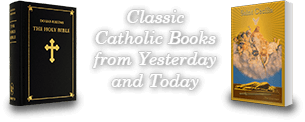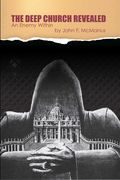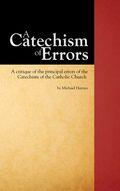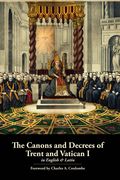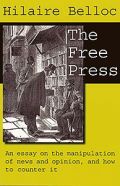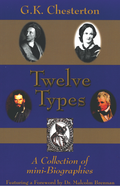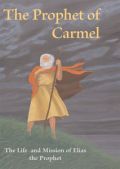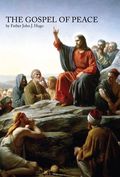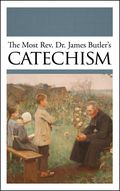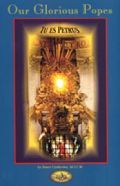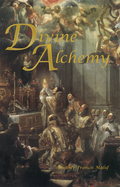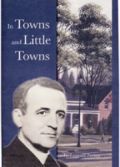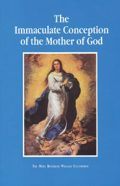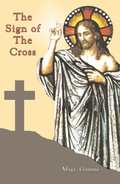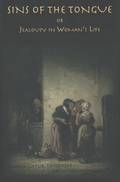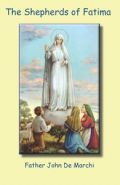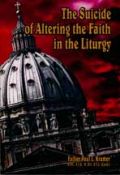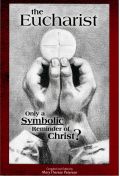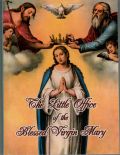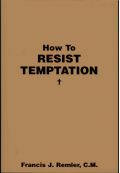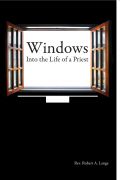By John F. McManus - 244 pages PB
This book, written by a prominent and well known Catholic American, is
the product of almost seventy years of close observation and deep study in a
turbulent world of rapid change and degradation of church and society.
Recently, the courageous Archbishop Carlo Maria Viganò published an acknowledgment
of the problems discussed in this book in his now world famous Open Letter to
President Trump where he spoke of Freemasonry and the ‘deep church’. Because
that letter appeared as this book was going to press, The Deep Church Revealed
was added to the original title as a fitting description of its content.
The revealing begins with a description of the Enlightenment philosophers
and their anti-Catholic hatred, and the author proceeds from there to detail in
forty-one astonishing chapters the story of how those men and the organizations
they inspired grew and and spread their pernicious doctrines throughout the
world and the Church.
The plans that these Freemasonic organizations laid were remarkably successful,
even though vigorously opposed by every Pope for over 200 years. “An
enemy hath done this” Our Lord said in the parable of the wheat and the cockles.
Truly, this can be said today of the situation in His Church. The holy and
vigilant Padre Pio told Fr. Luigi Villa in 1963 when he assigned Fr. Villa the task
of exposing these enemies “Courage, courage, courage! For the Church is already
invaded by Freemasonry that has already reached the Pope’s slippers.”
We are thankful to Mr. McManus for telling this story briefly, succinctly,
and with unbounded love for our Holy Mother the Church. He advises us,
like Saint Peter, “Be sober and watchful, for your adversary the devil goeth
about like a roaring lion, seeking whom he may devour. Whom ye should
resist, fortes in fide.”
By Michael Haynes with an Introduction by Archbishop Viganò - PB 164 pages
Sixty years after the Pastoral Council, that the promotional advertising told us was to usher in a new springtime for the Church, is sufficient time for the faithful to stand back and calmly observe the glorious fruits of the work of that Council. We at Loreto have done so, and many Catholics (even some who have spent years committed to implementing the principles of Vatican II) have done so as well. The historical facts appear to us to belie the promises made by Pope John XXIII and others.
As Pope John Paul II said, three of the most important fruits of the Council are: the New Liturgy and sacramental rites, the New Code of Canon Law and the New Catechism. With all of these brand new and very modern(ist?) post-Conciliar alterations in the laws and teachings of the hierarchy forced upon the faithful having had its trial of sixty years, it is now time to judge these fruits objectively. Surely, even those who have collaborated, either wholeheartedly or with reservations, in the advancement of these changes must agree that a just and prudent accounting should now be made of the blessings or curses upon the Church and the world resulting from the work of the Council.
This penetrating analysis produced by Michael Haynes under the direction of a faithful Priest, and prefaced by a faithful Shepherd, Archbishop Carlo Maria Viganó is what we hope will be a first of many groundbreaking studies of the new Catechism.
The Canons and Decrees of Trent and Vatican I - In Latin and English - PB 170 pages
Here you will find all of the essential documents and infallible teachings of these two modern councils of the Catholic Church. They are beautifully laid out in a two-column format with large readable fonts of both the original Latin and Cardinal Manning's English translation side by side.
Foreword
To say that the Catholic world is in a state of doctrinal confusion today would be an almost comical understatement, were not the issues involved—the individual salvation or damnation of every man, woman, and child on the planet—so important. Despite the wealth of defined dogmatic teaching that the Church has produced over twenty centuries, the actions of many prelates, priests, and theologians (some in the highest reaches of the hierarchy) have obscured the truths of the Faith for many, if not most, Catholics and non-Catholics.
This has happened before. In the 16th century, the successive revolts of Martin Luther, John Calvin, and Henry VIII and their brethren, together with pre-existing abuses and doctrinal questions that opened the door for their defections, created an enormous amount of confusion in the Church. All areas of Catholic life—pastoral, devotional, and liturgical—suffered. As kings and princes began to create their own state churches and enforce membership in these fake churches on their hapless subjects, Pope Paul III (1534–1549) decided, in concert with Holy Roman Emperor Charles V, that the time had come to call a new Ecumenical Council. This was slated to air Protestant complaints, reform Catholic practices, define or redefine disputed dogmas, and reconcile Christian princes, with a view to uniting Christendom and reviving the Crusades. Pope and Emperor agreed that it would convene at Mantua on May 23, 1537. Renewed war broke out between the Emperor and the French, thus delaying the opening. Two years of delays led the Pope to cancel the whole process.
Emperor Charles V, however, was very keen on the idea, and on December 13, 1545, the Council at last convened at the city of Trent. The seat of a Prince-Archbishopric of the Holy Roman Empire, it was Charles’ choice for the Council’s location. During the next few years in eighteen sessions, doctrinal decrees would be issued on the Holy Scriptures, Original sin, Justification, the Sacraments in general, Baptism, and Confirmation. An outbreak of the plague and various other things, including Paul III’s death, led to the Council being prorogued indefinitely on September 17, 1549.
The new Pope, Julius III (1550–1555), agreed with Charles V that there should be no further delay. The Council Fathers gathered at Trent on May 1, 1551. The Emperor and Pope concurred that the Protestants should appear at the Council and present their case—although without being able to vote. Although some of the Reformers did set out for the Council, in the end none appeared because of their inability to vote. Nonetheless, important work was done, and decrees defining Catholic teaching on the Holy Eucharist, Penance, and Extreme Unction were passed by the delegates. Unfortunately, at this juncture, the Emperor’s war against the Protestants took a turn for the worse, and Maurice, the Elector of Saxony invaded Tyrol. The Council was broken up by the threat on April 28, 1552. As Julius III retreated ever more into his strange interests, the prospect of reconvening the Council receded, while his successor, the stern reformer Paul IV, had other fish to fry in clearing out from Rome the moral detritus left by Julius. Moreover, Charles V had abdicated in 1555; his brother and successor as Holy Roman Emperor, Ferdinand I, was not as interested in Council as his brother had been—at least initially.
Pius IV (1559-1565) was determined that the council should be reopened and brought to a successful conclusion. From January 18, 1562 to December 4, 1563, the Council met at Santa Maria Maggiore, and continued until its final adjournment on 4 December 1563. The final doctrinal decrees were on Matrimony; Cults of Saints, Relics, and Images; and at last the very topic that had excited Luther so much way back in 1517: Indulgences. The documents were signed at last by 255 Council Fathers, and the bull of ratification was published by the Pope on January 26, 1564.
The Council had asked the Pope to continue its work by publishing definitive versions of a catechism based upon its decrees; shepherded through by Pius IV’s nephew, St. Charles Borromeo, this appeared in 1566, and remains today as the most clear, unambiguous, and authoritative catechism in print. Having appeared under St. Pius V, the catechism was soon joined by revisions of the Breviary and Missal, the latter of which remained substantially unchanged until the mid-20th century.
Almost two centuries later in the 18th century, the Catholic world had changed considerably. On the one hand, Latin America, the Philippines, and various other new regions had been added to the Church; but on the other Protestantism had solidified into its own bloc of nations, the Enlightenment and the French and succeeding Revolutions had toppled Monarchs, and there was no more Holy Roman Emperor. Scientism and Socialism were sapping the faith even of Catholics—and the supposedly Catholic government of the new Italian Kingdom was struggling with the Papacy for control of the remainder of the Papal States. At any moment, Bl. Pope Pius IX (1846-1878) faced an imminent invasion of his own capital, Rome.
The many struggles around the world between Catholics and governments intent on usurping the rights of the Church in various ways were at once symbolized by and subsumed into the one the Pope faced. This fact, combined with the spread of the telegraph, newspapers, and steamships put the Pope very much into the forefront of the Church’s worldwide struggle. The Ultramontanist party in every Catholic land called for the closest possible unity between the national Churches and the Holy See and with each other. In the face of all of this, Bl. Pope Pius IX convoked an Ecumenical Council, Vatican I.
Although they all refused in varying tones from polite to contemptuous, all of the Eastern Orthodox Patriarchs had been invited as full participants to the Council by the Pope as an attempt to end the Eastern Schism.
Opening on December 1869 at St. Peter’s Basilica rather than the Lateran (where the prior five councils in Rome had met) and adjourned on October, 20 1870, a month after the Italians at last conducted their long-threatened seizure of Rome, Vatican I accomplished far less than Trent. Nevertheless, it did deal definitively with two important matters. The first—the pretended clash between Faith and Reason, which Liberalism had pushed to the forefront of national life in so many countries—was dealt with in the Dogmatic Constitution on the Catholic Faith (Dei Filius). Far more controversial and hotly debated at the time was the dogma of Papal Infallibility, at last defined in the First Dogmatic Constitution on the Church of Christ (Pastor aeternus). The Council was then prorogued. It would not be officially concluded until the eve of Vatican II.
Much of course has changed since then. But what has not changed is the essential nature of these defining documents. Regardless of changes in technology, fashion, liturgy, or anything else, these pages contain the bare minimum of what it is to be Catholic: if one can read it all and agree with it all, he is a Catholic; if not, not. In the current period of confusion, a clear guide to spiritual reality such as this is utterly essential; we all owe a debt of gratitude to Loreto Publications for making it available.
Charles A. Coulombe
Trumau, Austria
Vigil of the Nativity of St. John the Baptist - 23 June 2022
The Council of Trent
Symbol of Faith - Canonical Scriptures - Original Sin - Justification, Sin, & Merit - The Sacraments in General - Baptism - Confirmation - The Eucharist - Penance - Extreme Unction - Communion: Under both Species & of Children - The Mass - Holy Orders - Matrimony - Purgatory - Relics - Indulgences - Profession of Faith
The Council of Vatican I
Dei Filius
Dogmatic Constitution on Faith - God the Creator - Revelation - Faith - Faith & Reason — Canons: God the Creator: Revelation: Faith: Faith & Reason
Pastor Æternus
The Church of Christ - Papal Primacy - Perpetual Papal Primacy - Nature of Papal Primacy - Papal Infallibility
The major works of compadres G.K. Chesterton and Hilaire Belloc have been widely circulated in the past few decades among an expanding circle of Catholics seeking a more universal knowledge of our Christian perspective, history and faith. At this time Loreto Publications cannot carry these treasures of wisdom, which are voluminous (Belloc wrote about 150 books), however a good supply can be obtained from other Catholic publishers. What we have chosen to do is periodically promote certain of their productions which we feel are particularly timely and potentially formative. Outline of Sanity and The Free Press preeminently qualify as fare for any soldier whose enlistment in the Church militant is more than perfunctory. The Free Press is a new release from IHS Press. It was written in 1917, the same year Our Lady came to Fatima. The media’s manipulation of thought among the masses, which Belloc warned about back then, by the financial power elite (motivated by capitalist interest rather than truth) has grown exponentially over these last four score industrial and technological decades. Yet this eighty page essay is not a wailing sheet of moral nor intellectual despair. The mighty author was too much of a Catholic, too much a man of hope, to see nothing but gloom and darkness on the literary horizon.
Twelve Types is a collection of short biographical essays, by one of 20th-century England's greatest essayists. In keeping with the spirit of IHS Press, that there is a Catholic way to look at everything, this book evaluates the place of such figures as Tolstoy, St. Francis, Savonarola, William Morris, and others, in the history of the West and from an unabashedly Catholic perspective. With typical wit and flair, Chesterton accomplishes what modern biography most often fails to do: discuss the important and central elements of the characters it presumes to examine, while omitting tedious discussion on matters of little import. Chesterton looks at the souls, the characters, and the lives of some of the West's most important figures, providing modern readers with a sane and Catholic orientation to their approach to these great individuals. Originally published: London, 1905.
IHS Press is pleased to present a new Preface to this edition by Dr. Malcolm Brennan. Malcolm Brennan is Professor Emeritus of English Literature at the Citadel, South Carolina, and is the author of numerous works, including a collection of essays on the history of the English martyrs. The social doctrine isn't just about economics. Make this slim volume part of your Catholic cultural library today!
Written by
Rev. Charles B. Garside, M.A.
Preface by
Rev. Edward F. Garesché, S.J.
Garnering his material from the last two of the four Books of Kings, Father Charles Garside, M.A., paints a portrait of a thundering visionary, who lights up the Old Testament perhaps more brilliantly than any other Biblical figure. A man of prayer and solitude, celibate and chaste, he moved courageously with every heavenly summons, never failing, never daunted. So much a contemplative and a teacher of eternal truth that, even though his inital mark on history falls in the Old Dispensation, he is nevertheless justly claimed as "the founder" of the Carmelite order. Taken by God, who came to seize him in a whirlwind, he was assumed into the heavens by way of a fiery chariot, and placed in the Garden of Eden from whence he shall come in the last days to do battle with the Antichrist.
By Fr. John J. Hugo - PB - 176 pages
Fr. John Hugo (1911–1985) was a priest of the Diocese of Pittsburg who spent much of his life giving retreats based upon those that he had participated in while still a young priest in the 1930s. Those retreats were given by Fr. Onesimus Lacouture S. J. and Fr. Hugo was one of over 6000 priests to whom the retreat was given over a course of several years. The Retreat, as it was affectionately called by its devoteés was an electrifying and life-changing experience for many of them. It was nothing more nor less than the Spiritual Excercises of Saint Ignatius. But these retreats given by Fr. Lacouture were, as the saying goes “the real deal.” They were given as St. Ignatius intended, for the proper length of time and according to the true Ignatian spirit. They got to the real “roots” of Christian living. They were, in short, radical.
Fr. Hugo became a disciple of Fr. Lacouture in the sense that he experienced the fruits and saw the necessity of the retreat for Catholic Americans. He determined to continue that work as part of his priestly vocation. Fr. Hugo became the spiritual advisor of Dorothy Day (and the Catholic Worker Movement) who took the retreat more than twenty times during her life.
This book, The Gospel of Peace, is one fruit of that work, and it was very controversial at the time of its publication in 1943. The Gospel of Jesus Christ is always controversial because it is “out of step” with the world.
The Most Rev. Dr. James Butler’s Catechism - Small booklet - 88 pages
Revised, Enlarged, Approved, and Recommended by the Four R. C. Archbishops of Ireland as a General Catechism for the Kingdom
Rev. Dr. James Butler, the Bishop of Cashel in Ireland, first published his world-famous catechism in 1775. Soon it became the “official” catechism for all of Ireland, approved for use by all of the bishops. At the Third Council of Baltimore in 1884 it was favored by many U.S. bishops as the basis for the new Baltimore Catechism soon to be published. In the end, the Council decided to use the catechism of St. Robert Bellarmine as the basis for a new catechism for Americans. Butler’s Catechism has always been widely used in the United States as well as the Baltimore Catechism, especially by Americans of Irish descent. At the 1st Council of Quebec it was decided that Butler’s would be the only catechism authorized for the English speaking faithful in Canada, and in 1871 Bishop Lynch of Toronto published it as the official catechism for his diocese. We have compared the various editions approved in Ireland and in Canada and they are (except for some slight re-arrangements in the order of the lessons and some different prayers) the same. This particular printing is that published in Dublin in 1944. It is a wonderfully simple and straightforward catechism useful for children and adults, especially for those who are interested in converting or who have just decided to enter the one true church.
Sister Catherine Goddard Clarke, M.I.C.M.
“I could not put it down.” Such enthusiastic responses as this are typical upon reading this powerfully written his-tory of the Church as illustrated in the challenging pontificates of ten of her more illustrious champions of orthodoxy. As one reads through the first forty-two pages, one is virtually taken on a journey through some four hundred years of tempus ecclesiae, from the momentous entrance of Saint Peter into the fearsome capitol of Satan’s doomed empire, to the triumph of the last Christological Council, Chalcedon, held under the pastoral eye of Leo I, the first Pope that Catholic posterity dared to call “the Great.” Sister Catherine vividly brings to life the painful and virile maturation of the Church Militant from its infancy in Jerusalem to its full manhood as expressed by the Toma of Leo solemnly read at Chalcedon in 451. The remaining bulk of information dovetails into the major periods of religious crises and tells of those heroic Popes who steered the Church through these gravest trials. For example, see how the little known Greek Pope Saint Zachary fought the Moslem influence which generated eastern Iconoclasm; see the Gregorys form the temporal city of God into the vibrant and monolithic power that Jesus intended; and see how the two Pius’s re-establish orthodoxy with one sword and humiliate the brazenly open anti-Christian forces with the other — burying them — for a time. This is a book that can restore hope and confidence in the might of the papacy.
Br. Francis Maluf, M.I.C.M.One can detect a definite influence from the priest poet, Father Feeney, in the rhyme and rhythm of the philosopher poet, Dr. Maluf. The former, however, has that Irish flair for painting with words; the latter that Semitic gift for impressing with similitudes. Brother Francis Maluf wrote these fifty-nine poems for leisure. Those of us who know him would have a hard time imagining him sweating for too long over a verse. When he was deeply moved, whether it be by a devotional grace, by wonder at something beautiful to behold, by a gospel story or character, or even by astonishment over some mystery of iniquity, his contemplative heart would seek a means of expression. These poems are the expression of Brother Francis’ contemplative heart.
by Father Leonard Feeney, S.J.
To My Mother, from her 'Minstrel Boy'.
So, you do not like poetry. Too many flowers and angels and stars and clouds. And too many adjectives ending in “Y”. Besides, the better the poem the less you can understand it, right? You are an ordinary Joe who prefers more solid food for his mind and you do not really care if the words rhyme anyway. Well, Joe, lighten up! Let your mind get a taste of Father Feeney’s verse. Your whole family will enjoy the new turf. It will warm the heart. In fact, every one of Father’s poems comes with that guarantee.
Night Noises
Angela died today and went to Heaven;
We counted her summers up and they were seven.
But why does that trouble you, unloosened shutter,
That flap at my window in the wind's wild flutter!
Angela's eyes tonight are cold and dim,
Off in the land of song and Seraphim.
But what does that mean to you, O creaking stair,
And mice in the wall that gnaw the plaster there!
Angela's little hands are folded white,
Deep in the meadow, under the starry night.
But why should an ugly gnat keep finely whining
Around the candle-flame beside me shining!
And never again — and never again will she
Come running across the field to welcome me.
But, little sheep-bells, out on the distant hill,
Why, at this hour, do you wake and tinkle still!
And not any more—alas!— and not any more,
Will she climb the stairs and knock at my lonely door.
But, moaning owl in the hayloft overhead,
How did you come to know that she was dead!
Composed by an Archbishop, this praiseworthy tribute to our Saviors holy Mother was actually written the very same year that Pope Pius IX defined the dogma of Our Ladys Immaculate Conception. Beginning where all great works on Our Lady should, with her exalted office and dignity, the author educates the reader that he or she might see the congruity, even the necessity, of Marys divine prerogative in the eternal plan of redemption, and also see the Immaculata as the fulfillment of the highest possible degree of excellence God could establish in a creature, perfecting through her the crowning glory in the gradation of all being outside of God. Archbishop Ullathorne is not original, but masterful, in his explanation of Marys royal relationship with the angels as well as men, for she it was who gave the Incarnate God the flesh and blood by means of which all the elect achieved their salvation. A true gift of charity for a Protestant friend in search of truth!
Msgr. Gaumé
The holy Sign of the Cross is the most important prayer and symbol of our Christian faith. It is at once the image of Christ's passion, the sign of the redemption of all mankind, the awesome testament of the destruction of the power of the devil and of his kingdom on earth. The resurrection is the promise and seal and guarantee of eternal life which consummated the work of the Cross.
Christians rejoice and the demons tremble to see the Sign of the Cross emblazoned everywhere as proof of Christ's victory over the world. Christ said "all power is given to me in heaven and on earth" and the Cross is the seat of that power. There is no place on earth where a person who makes the Sign of the Cross is not immediately recognized as a Catholic, and there is no miracle that has not been worked under this sign. It is the "nuclear bomb" of prayers and with it the faithful can clear away all enemies and temptations with the simplest of wordless gestures. Msgr. Gaumé has compiled a magnificent collection of history and commentary from the saints and fathers and doctors, as well as his own meditations and exhortations regarding this most powerful prayer. All Catholics should avail themselves of this information and make it fruitful in their own lives.
Father Paul Kramer B.h, S.T.B., M.Div.,S.T.L. (Cand.) A powerful and extremely important and powerful NEW book, Father Paul L. Kramer compares the New Mass and the traditional Roman Rite, and presents surprising yet theologically sound answers to the questions which will bother all sincere Catholics. The prophetic phrase from Pope Pius XII was used for the title of the book. An American priest, Father Paul Kramer gives a convincing argument why we should “stand fast and hold the traditions.” Published by the Missionary Association. Softcover 204 pages. $11.95
Marie Thérese Peterson - 166 Pages Paperback
Is the Holy Eucharist REALLY the Body and Blood of Christ, as the Church has taught for 2,000 years, or do we receive only a symbolic reminder of Jesus at the Last Supper? Statisticians claim that a high percentage of Catholics in our time have lost the true meaning of Holy Communion and demonstrate their unbelief by neglecting to genuflect in the presence of Christ, or by talking in Church as if it were a social hall. Our author has gone to the heart of the matter and has shown conclusively that this is the GREAT sacrament that nourishes every life that was recreated in the sacrament of baptism - making the recipient true blood brothers and sisters of Christ by sharing intimately in His very Divine nature.. Color photos show Padre Pio in ecstasy as he celebrates the Holy Sacrifice of the Mass. Beautifully written and thoroughly convincing. A great gift item for those who may be weak in faith or poorly instructed.
Small (3.75" by 5") abridged 1914 Edition of the Little Office - 220 pages PB
The ancient prayers in this book are shown in both Latin and English text. The left page is Latin and the right page English. This layout method is easier to read than when the English and Latin are split in two columns on the same page.
A more complete version of the Office is also available on this website.
Fr. F. J. Remler, CM - PB 180 pages - 5" x 7"
Learn how to resist temptation now — before it’s too late!
You’ve no doubt taken steps to ensure your safety — and your family’s — from various kinds of worldly calamities. But if you haven’t made sure you’re properly on guard against temptations, you’re setting yourself up for a spiritual disaster of immense proportions. No matter how devoted to Christ you are, temptations are going to come to you. That’s why How to Resist Temptation is essential reading for every serious Catholic.
The author, Fr. Francis J. Remler, C.M., helps you prepare yourself so that, when temptations begin to assail your soul, you’ll be ready. Learn from Father’s experience Fr. Remler gives you the benefit of his expertise as a confessor and shepherd of souls, as he shows you how to identify and guard against common misunderstandings of what temptation really is and what it is not — misunderstandings that can paralyze your spiritual growth. He details ways you can recognize the elements of temptation — and be on guard against often-unrecognized causes of individual temptations. He reveals how you can keep the memories of your past sins from troubling and tempting you now, and clarifies why God allows temptation to exist in the first place. He even explores the role of the demonic in day-to-day temptations — with firm faith in God’s power.
A marvelously encouraging and optimistic book, How to Resist Temptation even contains useful directions on how you can — believe it or not — actually benefit from temptation, and how you can learn from others’ examples as you fight against temptation. So the next time the siren song of temptation starts to sound in your ears, don’t try to tough out the struggle alone — call on God’s ever-plentiful grace, and go to battle against sin armed with the wisdom of How to Resist Temptation!
Everyone concerned with philosophy—the college undergraduate just becoming initiated into the fascinating realm of metaphysical inquiry, the interested adult anxious to grapple with questions of fundamental importance, or the busy teacher seeking to whet his student’s appetite for truth—all will find this concise, reference book of the terms most commonly used by scholastic philosophers of remarkable value.
Arranged in dictionary form, this work contains over 1,600 entries and subentries of scholastic terms and phrases, and includes in addition over thirty charts and diagrams providing salient information on such topics as the divisions of act and potency, the kinds of appetites, the categories of being, the types of law and their relations one to the other, the powers of man, and many others. Within an entry the sequence, in general, is as follows: term or phrase defined; its part of speech; its meaning; cross references to antonyms, synonyms, and related terms; abbreviation of the term; uses, particularly of adjectival terms; divisions of incidental terms and phrases using the main term; references; charts and diagrams.
Preference is given to the definitions of terms as found in Aristotle and Saint Thomas, but abundant attention is given to important concepts of such thinkers as Scotus and Suarez. In addition, the author has cited references to the best of modern textbooks and to the pertinent works of prominent neo-scholastics, among them Maritain and Gilson.
What renders the volume so valuable is the fact that it provides in compact form the important concepts common to scholastic thought. By giving clear-cut definitions it helps beginners avoid needless controversies and aids them to see the value of a particular philosopher’s insight into reality. Particularly valuable for the ever growing number of individuals clamoring for the truth handed down through the philosophia perennis, Dictionary of Scholastic Philosophy will be appreciated as a basic reference work of prime importance, one which helps all students of philosophy see the relationships between the separate branches of philosophical inquiry and to appreciate the value of definitions as a requisite for the sound philosophical analysis of reality.
Fr. Robert Lange - 168 Pages - PB
“He is a priest forever! Father Lange’s fascinating account of his lifelong path to the priesthood and his experience of grace is intensely personal, and yet he accomplishes his purpose of reminding us about universal truths and the possibility of a permanent, loving relationship with God. This inspiring book is equally suited for Sunday afternoon reading and as a required text for students and seminarians.”
Patrick J. Reilly President, The Cardinal Newman Society
Father Robert A. Lange’s engaging memoir, Windows into the Life of a Priest, supplies exactly what the book’s title indicates, namely, an anecdotal account of one man’s Catholic priesthood. While it is autobiographical in the sense that it is based largely on Father Lange’s life and experiences as a priest, the aim and purpose of the book belong more to the realm of Catholic faith and devotion generally, and, indeed, to that of Catholic apologetics, giving reasons for the faith, offering “a defense…for the hope that is in [us]” (1 Pet 3:13). Among other things, Father Lange turns out to be quite an effective apologist for the faith.
At various times in the text, Father Lange remarks, in effect, that “It’s not about me!” Rather, it’s about faith and God’s grace, how important and indeed necessary they are, and how they literally make life worth living. Father Lange certainly shows that they have made his life worth living—and worth recounting too, for the benefit of others, especially for those he calls wayward Christians. If God could save him—and by save here is meant not only eternal salvation, but rescue from an aimless and empty life here and now—why could he not save you or me as well? That, in fact, is precisely what God wants to do for all of us; he wants to save us from ourselves—if only you and I will respond to his love, abundantly offered to everyone, and cooperate! This is an important part of the message that Father Lange never tires of repeating.
Kenneth D. Whitehead

